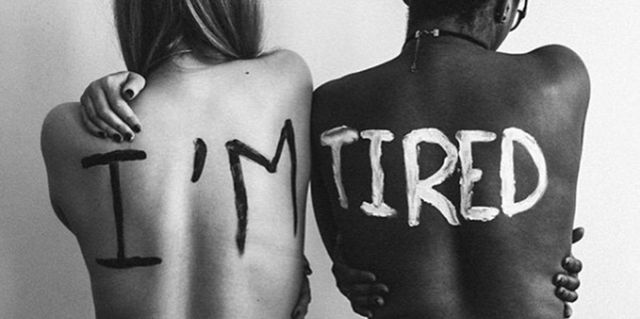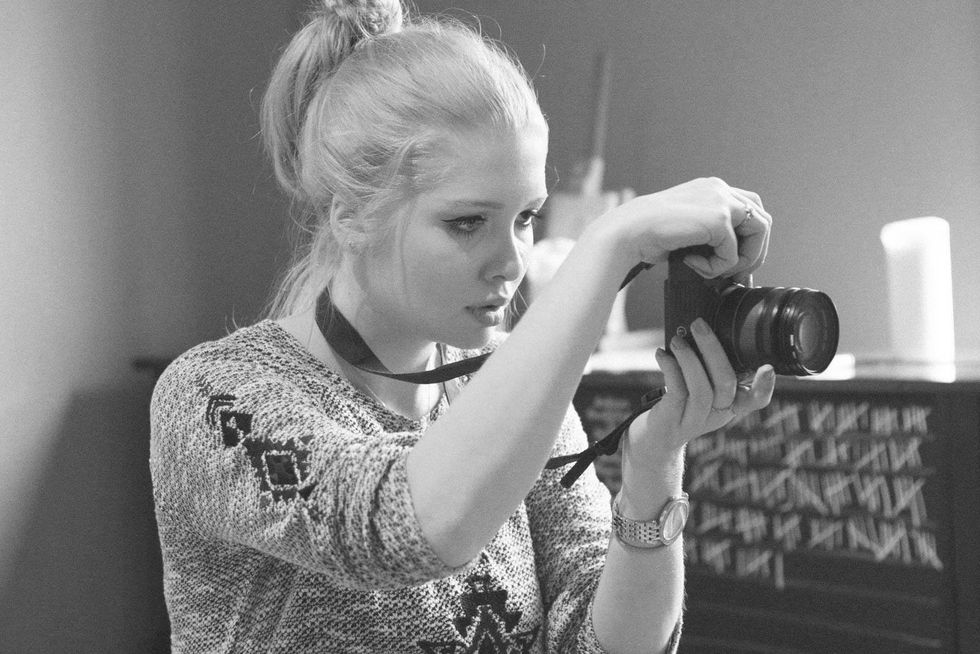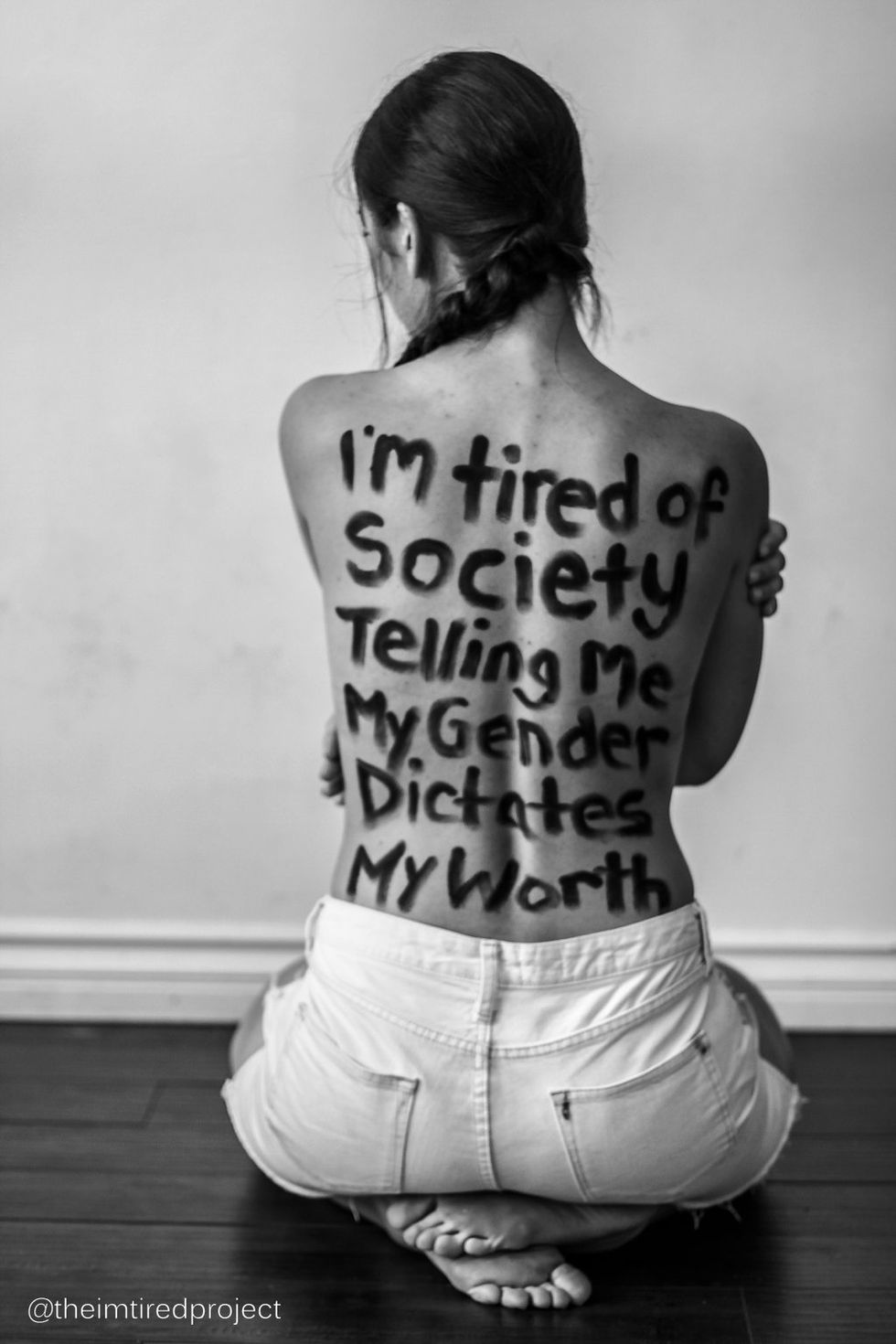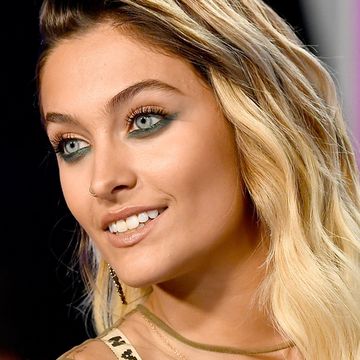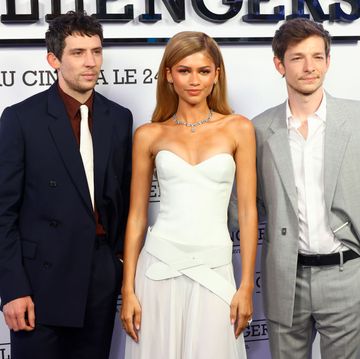One in five black and minority ethnic (BME) people in the UK have said that they were worried about getting physically attacked because of their religion, ethnic origin or skin colour.
Nearly half of young transgender people have attempted suicide.
And two-thirds of young women have experienced sexual harassment in the workplace.
These are just three statistics that illustrate that however far we have ventured towards equality, there is still so much to be done.
While we are becoming more able to tackle the bigger aggressive prejudicial moves, such as racially motivated street crime, we are yet to find apt ways of tackling aggression on a smaller scale.
Micro-aggressions - phrases, comments and names used in colloquial speech that might seem innocuous to some, but are deeply insulting to the people at which they've been aimed - are just one of the ways that racism, sexism (and all the other -isms) are able to persist even in more culturally understanding communities.
The 'I'm Tired' Project is run by two 23 year-olds, Paula Akpan and Harriet Evans.
It's a project that tells individual stories of micro-aggressions to expose these issues to people who haven't experienced them, to start a conversation and maybe even get someone to rethink their position.
The two became friends at Nottingham University, and after realising how tired they were of the many -isms in the world, they decided to do something about it.
Intrigued by the success of the stark, faceless photos and honest, raw mini-essays on their page, ELLE reached out to the young activists to find out more.
Can you tell me about the name The 'I'm Tired' Project and how you decided on it?
H - In a lot of the coverage we see people are quick to label us and our subjects: 'angry, man-hating feminists' or the 'angry black woman,' but, overall I think you'll find the people who experience micro-aggressions and discrimination are tired and worn down, more than anything.
What Are Micro-Aggressions?
P - Micro-aggressions tend to be language or actions said or done in passing, normally without thinking on the part of the perpetrator but they serve alienate the recipient who will often be a member of of a marginalised social group.
Examples include 'that's so gay', 'you probably did well because you're Asian', 'she must be on her period' and 'no, I meant where are you really from?'
They serve to make you feel like you don't belong, that anything you do or don't accomplish is as a result of your race, gender, sexuality, religion, size, disability or that you're generally just not part of the club.
We have more and more people engaging in dialogue around discrimination. However, you still get the small nuances - micro-aggressions - falling through the cracks.
H - Being a woman is still having to deal with the MACRO-aggressions. I also had a couple of experiences while at uni of being touched inappropriately, as well as being followed home, and both just didn't seem to be taken seriously – it drove me nuts!
But then, in addition to this, being so close with Paula taught me her struggles as a woman of colour, and how easy I have it as a white woman in comparison.
Micro-aggressions are harmful because they are so under-the-radar that it makes people feel like they are over-reacting.
I believe that it's described as 'death by a thousand cuts' - very small but consistent insults that build up over time.
You photograph the backs of people - it's really striking. Can you walk us through why you chose that aesthetic?
P - We chose to picture people's backs for a number of reasons. Most importantly it's so the participants remain anonymous, which enables them to be as honest and blunt as they want. This also means viewers can relate to the experiences more as they can slot themselves into that role.
There's also the symbolism of having to carry these experiences of discrimination and stereotyping around with you. Lastly, it's practical because it gives us a huge canvas!
Have any particular stories stood out to you?
P- We were invited to exhibit in New York last year and asked to photograph the locals. I met one incredible woman who has Parkinson's.
She described the process of going grocery shopping and the inevitable experience of people behind her tutting and sighing as she slowly puts bags her items after they've been scanned, leading to her always having to reveal that she has Parkinson's in order to gain some respite.
As someone who is not a disabled person, I have privilege in terms of never having to think about how a debilitating condition affects someone's daily life so it was a firm reminder of the things I often take for granted.
This woman attended the exhibition launch and saw people reading her words and taking pictures of her picture and got a bit emotional - which in turn got me a bit teary. Always great when you're a bit drunk and have to give a speech in a matter of minutes.
H - One particular story that stuck out for me was about size, and unfortunately the reason that it stuck out to me is because of the amount of hate that the post received.
The model was simply saying 'stop judging me for my size, it's really none of your business. I eat well and I exercise, I just have an invisible disease'.
We received an incredible amount of people who thought they were doctors or nutritionists, who completely missed the point of the post 'Stop judging me' and instead judged her, and in quite disgusting ways.
The courage of this woman, who is, to this day, so supportive of our project, is amazing. I am in awe of her.
As much as you get support there must be 'haters' and those who are ready to critisize the project?
P - We've had a terrific amount of support. People have gotten in touch with us just to let us know that they resonated with one of the pictures or felt very much alone.
One of the most touching things was when we posted a picture that addressed the taboo of miscarriages and in the comments, people who had themselves experienced a miscarriage where posting about their individual experiences and reassuring one another.
It was just really humbling to have been able to facilitate what was hopefully a source of comfort.
Though, we've been called over-sensitive, typical millenials, snowflakes, the lot.
H - In terms of trolls, they come in hoards. We get Nazis, we get uber conservatives, we get people who say we're not even doing a good enough job at being representative, we get people who just want to kick up a fuss.
When it comes to the plain disgusting comments – the racists, the homophobes etc. we just delete the comment.
They're not adding anything to the discussion, they're not here to learn, and they're not even here to get an actual point across.
They are just angry and their intention is to hurt.
Our models are real people, and they do check the comments on their own photographs. Our number one priority will always be to protect them, and the community that they're representing.
Despite the subject matter of our page being about what people are tired of – want to harbour a happy and supportive environment, so trolls have got to go.
Do you think your project has the capacity to change things?
P - I used to think that our project just has the capacity to open dialogue and start conversations.
But since carrying out interactive workshops with young students that explore and define micro-aggressions, stereotypes and discrimination, I do genuinely believe that maybe we can have an impact.
H - Absolutely. The subject matter itself is about micro-aggressions: small things which have a big impact on a person. That's proof in itself that small things can make an impact.
Daisy Murray is the Digital Fashion Editor at ELLE UK, spotlighting emerging designers, sustainable shopping, and celebrity style. Since joining in 2016 as an editorial intern, Daisy has run the gamut of fashion journalism - interviewing Molly Goddard backstage at London Fashion Week, investigating the power of androgynous dressing and celebrating the joys of vintage shopping.
